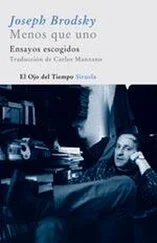The murmurs outside the gates grew louder when they saw Basu and Nambodri walk towards them. The guards opened the gates. The reporters rushed in and swirled around the two. Basu touched his newly combed hair. Nambodri stood with a wise smile and nodded to acknowledge some of the reporters he knew by name. His role for the evening was that of a silent and reluctant incumbent forced to take the reins of power in the midst of the Institute’s disgrace. The Press Officer arrived and raised both his hands.
‘Questions later,’ he screamed.
Basu showed his palms to the journalists and asked them to calm down. ‘I’ve an announcement to make,’ he said, and that brought about a hush. ‘The internal inquiry is over. Dr Arvind Acharya has confessed that he ordered Dr Oparna Goshmaulik to falsify the research in an attempt to fraudulently prove that he had discovered life at the altitude of forty-one kilometres above the Earth.’
There was a precarious silence for a moment which collapsed in a roar of questions.
‘And, and,’ Basu said, trying to reclaim the attention, ‘I regret to say that we have found other instances of unacceptable conduct. He misused the funds of the Institute to feed his ambitious Balloon Mission. His general behaviour has, for long, humiliated the brilliant minds that work here. It has also come to our notice that he used the basement for some activities that we are too ashamed to disclose. It was unbecoming of the Director of the Institute of Theory and Research, an institute of excellence, to use the premises for such activities. In the light of these extraordinary circumstances, Arvind Acharya has been suspended until further notice. Dr Jana Nambodri, one of the founding fathers of radio astronomy in this country, has been elevated as the acting Director.’
In the coming days, Acharya would fervently deny that he had confessed to contaminating the sampler, but his disclaimer was lost in his silence over what Oparna meant to him and whether he had indeed used the basement as a love-nest. The uncontrollable force of public perception would, inevitably, decree that a man who could seduce a woman almost half his age in a basement lab was probably involved in other nefarious activities. Even his powerful friends who were once flattered to serve him when he deigned to call for their help, now distanced themselves from him. Some would not take his calls; others said that he should fight his battles (probably till eternity) in court. Scientific bodies that had once begged him to endorse them with his name would tell him, with formal regret, that his association was not necessary any more. Friends and fans would write to him from all corners of the world affirming their faith in him, but even in those letters he would see the strength of old boyish love and not the conviction that he was innocent.
After the declaration at the gates, Nambodri and Basu went to the third floor. As they walked down the long corridor, doors opened. Some scientists nodded in appreciation. Many stared bleakly. An old wizard of Number Theory handed an envelope to Nambodri and said he was quitting. But the mood was somewhat festive. As the two men walked, a swarm of speechless scientists began to follow. And this swarm grew until they stood outside the door that said Director. Basu opened the door and in a ritual that had no tradition, he extended his hand graciously asking Nambodri to walk in first. The applause shook the furtive labour of Ayyan Mani.
Ayyan was trying to stick together the shreds of Acharya’s letter to Basu. He believed it might have a use in the future. He hid the almost-repaired note in the drawer as the crowd entered the anteroom, like the Pathans who followed John Simpson during the BBC’s liberation of Kabul. Basu opened the inner door and the swarm moved in. Ayyan followed them inside to watch the rare physical gaiety of the Brahmins. He planted himself in a corner.
Basu stood at the desk and said amidst laughter and applause, ‘All yours.’
Nambodri sat in the huge black leather chair and said in a deep voice, ‘There was no Big Bang. There never was.’ And everyone laughed.
He spotted Ayyan, who quickly laughed in a belated appreciation of a joke he was not expected to understand. ‘Would you like to work with me, Sir?’ Nambodri asked.
‘It’ll be my honour, Sir,’ Ayyan said.
‘How is your son, the genius?’
‘He keeps talking about you, Sir,’ Ayyan said. ‘He loved the posters in your room.’
Those framed film posters would soon move in a procession in the feeble hands of dark peons. From the office of the Deputy Director they would pass the corner fiefdom of Ayyan and vanish through a door that was now stripped of the gold-plated mascot of the old world — Arvind Acharya. The blank textured walls of what used to be Acharya’s office were now adorned with the visuals of ET, Men in Black, Superman, Mars Attacks, and a blowup of an introspective Carl Sagan captured before he began to die.
Acharya had left everything behind except Oparna’s photographs, some journals, his collection of Topolov’s Superman, and the piece of meteorite that he used as paperweight. Nambodri threw most of his things out and altered the look of the room. He shifted the snow-white sofas to the window and arranged the desk in the corner that was diagonal to the door. The only time Ayyan had seen Acharya on the sofa was when he had met Adi. But the new regime was run from the sofas, and in the boisterous chatter of radio astronomers who spent the whole day against the backdrop of the Arabian Sea, plotting their future. They did not have to wait with Ayyan any more in the anteroom, and it was inevitable that they would throw a glance of simple triumph at the man every time they bypassed his clerical authority and went straight in to meet the new Director.
One evening in the changed world, Professor Jal rushed in barefoot and almost sprinted through the inner door. He stood by the window and told Nambodri’s happy caucus, ‘Look outside.’ The astronomers came to where he was standing, and looked. On the tarred driveway that meandered to the sea went Arvind Acharya. His trousers lay precariously at the lower waist, one sleeve of his shirt was folded and the other was not. He stumbled on a small pothole and one of the bathroom slippers came off. He flipped it over with his foot and slipped into it. He appeared to contemplate his feet for a moment. Then he resumed his slow, laborious walk. Scores of still figures looked from the other windows and from the lawns. But Acharya went on his way unseeing, his head slightly bent. He opened the wooden beach gate and went down to the black rocks. He sat there long after the figures behind the many windows vanished, one after the other.
He began to arrive every day. He would wander around the lawns or sit on the sea rocks. The guards did not know how to stop him. He would look at them like an infant, and they would silently open the gates. Late in the evening, they would open the gates again for him to leave. He would cross the road without looking and vanish into the Professors’ Quarters.
This was a fallen man, people said, who was in the misery of disgrace, but in reality Acharya was in the confusion of feeling nothing at all. He felt no pain, no shame, no anger. His eyes were always transfixed, but at nothing. They had lost the power to see even memories. Lavanya tried to console him, but she did not know how she should reach out to a man who was on the far shores of a living death. She allowed herself the mild cruelty of not trying too hard to reclaim him because his disgrace had advertised her own defeat at the hands of a younger woman. Also, his suspension had diminished her authority among the ladies of the Quarters. Her power would have completely perished had it not been for her beauty and unusual height. But she was also a beneficiary of the sympathy of the wives because, in their perennial conviction that they were all victims of men, they had a special place in their hearts for a real one. Mrs Nambodri, now bearing the charming discomfort of being called Mrs Director by the peons and guards, had arrived last week at Lavanya’s door like a visiting stateswoman. And they spoke about the disparities between Vietnamese Buddha heads and Thai.
Читать дальше












